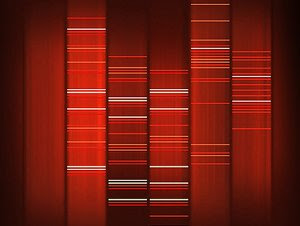Nature has found a way send genetic information forward through time, and no, it doesn't involve Doctor Who finally getting with Rose. Tiny crustaceans can bury their young in the Earth for centuries, and scientists in the new and awesomely-named science of "resurrection ecology" are using these sleeping samples to study evolution.
 Some zooplankton (as the name suggests, tiny animal-like creatures the size of plankton) lay eggs which lie dormant over inhospitable seasons, evading undesirable predators or unsurvivable conditions. Sometimes these eggs get covered over and aren't triggered at the right time - but instead of going off (and producing an extremely unwelcome smell when all you want is breakfast) these eggs can be reactivated if later stirred to the surface.
Some zooplankton (as the name suggests, tiny animal-like creatures the size of plankton) lay eggs which lie dormant over inhospitable seasons, evading undesirable predators or unsurvivable conditions. Sometimes these eggs get covered over and aren't triggered at the right time - but instead of going off (and producing an extremely unwelcome smell when all you want is breakfast) these eggs can be reactivated if later stirred to the surface.
This has enabled Professor Hairston and colleagues to study samples sent forward from past times. Because of the zooplankton's short lifespan genetic changes are easily identifiable over decades, as species adapt to a changing environment - for example, an increased tolerance to toxins which have now been proven to kill earlier models. So if there is an Intelligent Designer, He apparently carefully sifts the mud at the bottom of lakes to make extremely minor changes to every cell He finds. Which isn't much of a hobby for someone with the power of creation.
"We can resurrect them and discover what life was like in the past," said Hairston, who came to Cornell in 1985 and is a professor and chair of Cornell's Department of Ecology and Evolutionary Biology. "Paleo-ecologists study microfossils, but you can't understand much physiologically or behaviorally" with that approach."
Hairston and amigos have organized a Resurrection Ecology Conference for later this year, but don't send out the BatSignal just yet - there wont be an army of extinct species issuing forth from the convention center. The field only applies to tiny egg-laying plankton so far; but with advances in genetic engineering, who knows what they'll be able to study in the future. (Daily Galaxy)